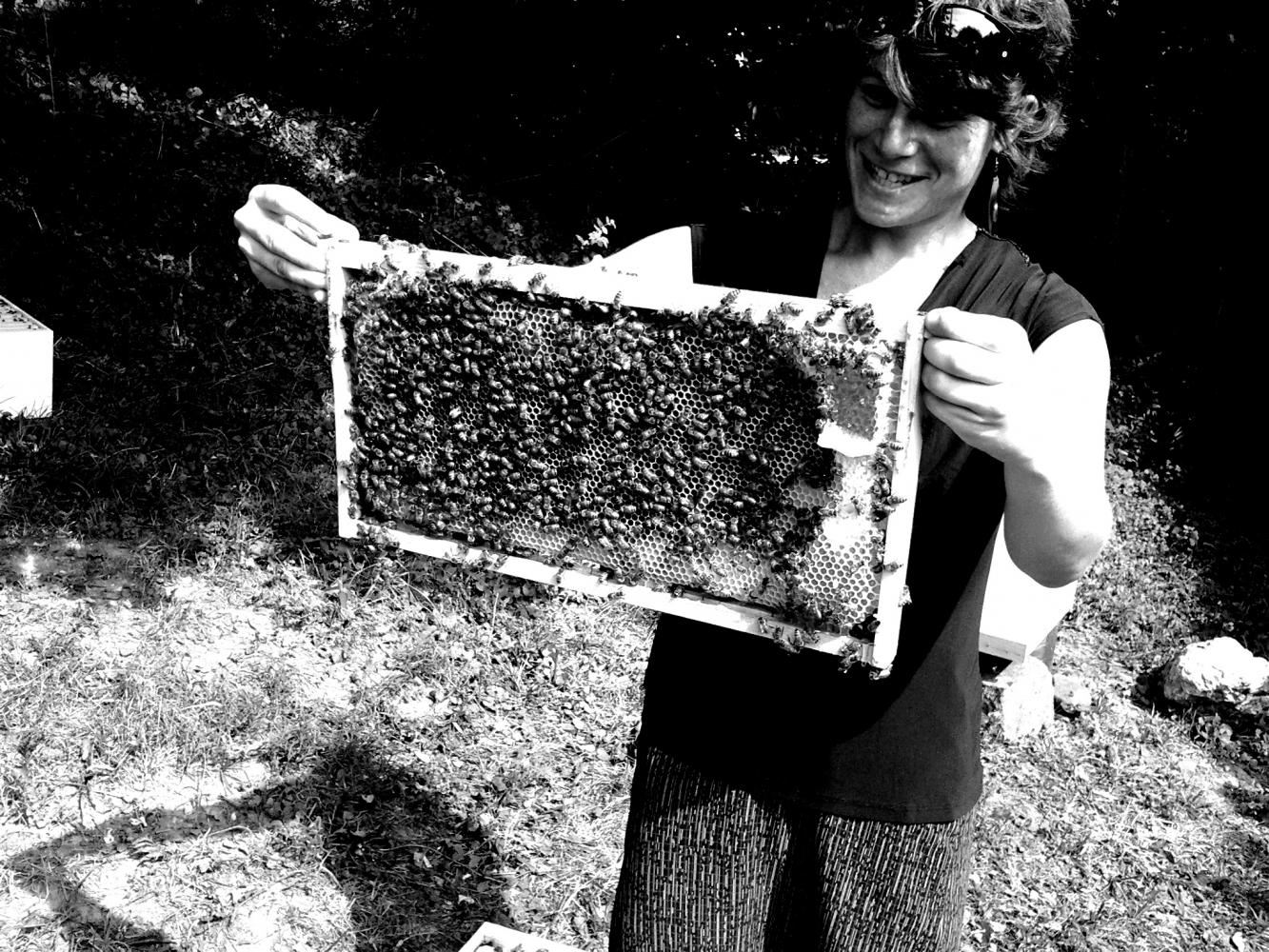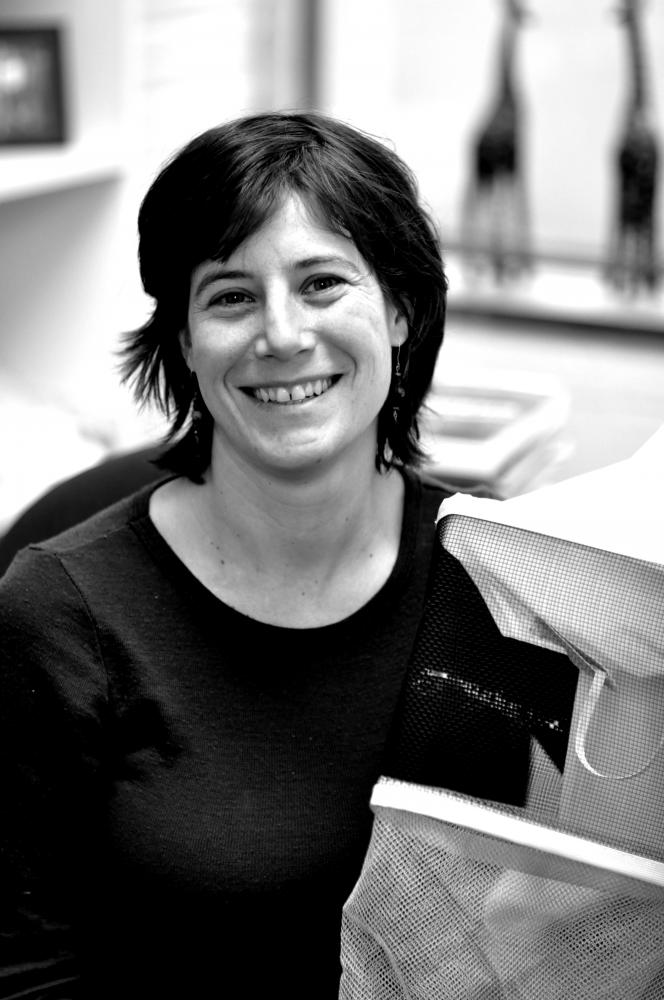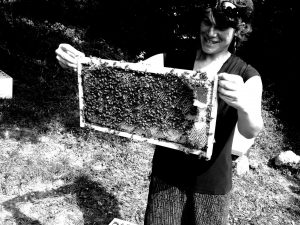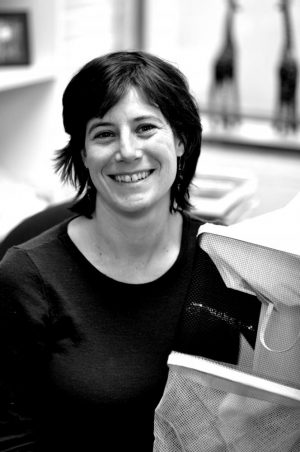Professor Profile: Prof. Bratman on Localizing Development
How did you get into beekeeping?
Joe [Clapper, an Assistant Dean in SIS,] offered a Dean’s Discretionary Grant to me in the spring of last year to get started bee keeping. It was largely a result of having joked with him. I kept saying, “Joe, if you guys don’t have the resources for a full green roof, we might as well start with bees. What’s a couple of hives up on the roof? No big deal.” The resources for a green roof are hopefully going to come and we’re starting where we can—with a bee hive.
What do you find really interesting about bees?
There are a million factoids. They spend 98 percent of their life spans in total darkness. When they go out foraging, it’s all based on the waggle dance bees do inside of the hive, which tells the bees the direction of the flowers or the trees they should go forage in as well as the distance. They forage within a three mile radius of wherever their hive is and know by the smell of their queen and because they have good memories for directions, how to go off three miles away and then all the way back to their hive.
Have you ever been stung?
Oh, yes. Many a time. And it’s okay—I’m here to tell the tale. At first I wasn’t using any protective gear because when bees are very young, you don’t need to because their stingers aren’t fully developed yet. It’s actually a pretty miraculous thing that you can actually just scoop up a bunch of buzzing honey bees and not really worry much about getting stung. They’re quite docile as a species, so they’ll only sting when they feel threatened or when they’ve got something to defend. The hive started on the SIS roof, and quickly thereafter we got funding together and started two additional hives here on campus, the honey co-op hives. Those hives were struggling a lot during the tropical storm. When I went to go check the hives right after the storm, I got stung on my lip, and I looked like Shrek. Literally my lip was flopping in the wind, it was so swollen.
Do you have any long term plans for the bees?
I hope that we can harvest some honey. Also, as part of this Green Eagle Grant we have funding for a hive camera so that we could potentially stream images of what’s going on just outside the beehives into the Davenport Coffee Lounge. That’s part of the vision for raising awareness about the bees. A lot of what I aim to do as a professor is to get students to think about the international issues in ways that are tangible and personal. As I see it, a lot of my work around the bees here on campus is a way of giving real-life practical examples in what is otherwise an area that can often seem theoretical and abstract or never personal—never right here at home. A lot of what I write about in my scholarship is not just the problems of sustainability, but also about the problems of urban development and inequality and representation right here in Washington DC.
Can you elaborate on some of that local scholarship?
A paper I just wrote for Third World Quarterly is drawing attention to the paradox in international development that we’re always focused on outsiders. My paper is called “Is Washington D.C. A Third World City?” I look at environmental problems, representation, inequality and social exclusion in the city and talk about the ways in which we might actually reconsider this so-called heart of the first world in ways that challenge international development practitioners and policy makers across the board to consider DC as a city that’s still very much in need of attention as well as greater political representation.
What’s living on a houseboat like?
I live on my boat year round. It’s a 1971 houseboat. The engines don’t work anymore, so it rocks, but it does not move on its own power. It’s a very comfortable living space. In the wintertime I use space heaters to stay warm. I’m trying to be as eco-friendly as possible on the boat. There was a story about me in the Earth Day issue of Politico in 2010 that talked about me as a green pirate. I live small. You kind of have to have a thick skin for all the stuff that can go wrong on a boat. My pumps can break or my plumbing can not be as smooth as it would be if it was connected to the main city system. I’ve developed quite a lot of handywoman skills throughout the course of living on a boat. I’ve been there for three years.
Can you talk about your research in the Amazon?
My research was taking place as the Brazilian government was about to create one of the world’s largest biodiversity corridors. And this had come on the heels of a very high profile assassination of a nun for her work in favor of land reform. When I went to do my field research, it was a very tense time with a lot of uncertainty. Since that time, Brazil has kind of continued to go back and forth in making progress against deforestation and then really backsliding. And currently, the Brazilian Forest Code is looking like it’s going to be basically gutted. I think it’ll mean really sad things for the region and its people in terms of protection of the forest as well as for smaller scale agriculturists. The government also seems to be disturbingly moving ahead on a dam, which is right in the middle of my field site. It’s projected to be the world’s third largest dam in terms of it’s energy production, and it’s going to flood out about 18 different indigenous communities as well as portions of the city nearby. So I’ve been following that very closely and developing a research project on activism around the dam.
Are there any experiences or interactions with people that really stick out to you?
Well, there was the death threat. I got very close with people there and, in the course of my research, I had a lot of institutional support from an organization that was very clearly on the side of the small-scale agriculturalists. Because of that, the people who were the vested interest of the illegal landholders, the land speculators, were not happy with the activism towards creating these conservation areas. Their tried and often untrue technique was to try to stop people who asked too many questions from going into these areas. But aside from the bad, there was just a lot of good in it. I now have a whole Brazilian network of contacts and friends. There’s someone there who I adopted as my surrogate mom and she thinks of me as her surrogate daughter.
What have you learned from Brazil?
I think some lessons are about the strength of community action and community organization around sustainability issues. A lot of what I saw in Brazil was not people waiting for a progressive national policy on any particular issue, but rather about communities deciding what they wanted for themselves and working to try to find ways to make it happen.
Photos by Aaron Berkovich & Eve Bratman










